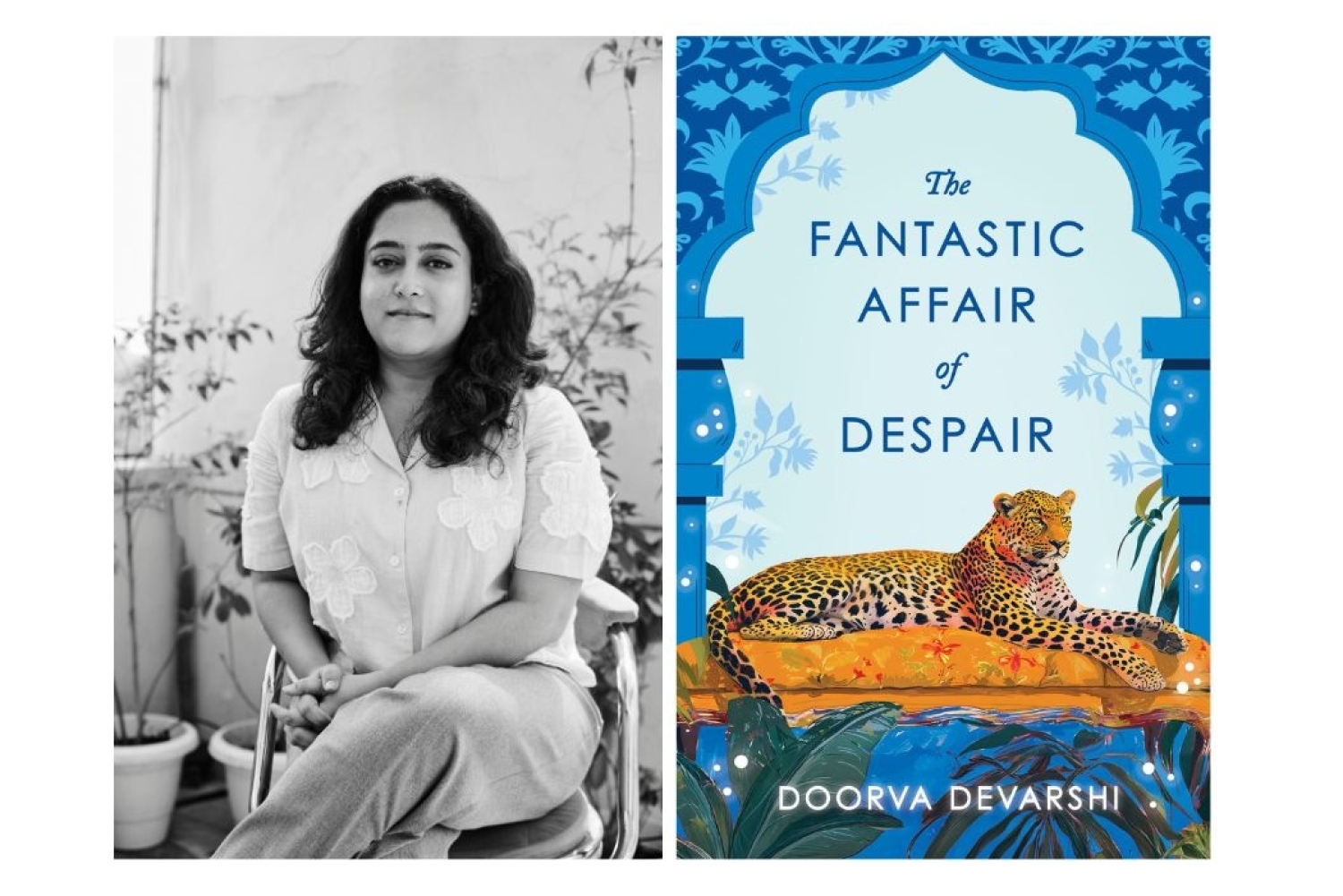

This summer, Doorva Devarshi unveiled her debut novel, The Fantastic Affair of Despair, a captivating blend of magical and social realism. Set against the backdrop of 1970s India, a nation navigating its post-Independence identity, the novel explores the complexities of memory and self-discovery. The unnamed protagonist, simply referred to as ‘she’, becomes both witness and participant in the shifting landscape around her. Her journey takes her through a series of extraordinary encounters, including a pregnant child bride, a man-eating leopard, and a confrontation with her own troubled past.
From the confines of a male-dominated office in a rapidly modernising India, to the tranquil yet perilous terrain of the Himalayas, The Fantastic Affair of Despair moves into the themes of gender, memory, national identity and the fragile bond between humanity and nature.
Doorva discusses the inspiration behind the novel and the deep connection to the mountains that helped shape the narrative.
The Ambiguous Nature of Memory
I have always been intrigued by how deeply we are shaped by our memories but also not just those of ourselves. We are shaped by our family, friends, almost everyone who touches us in one way or another. They are, in turn, shaped by their memories which directly or indirectly affect us and so on and so on. Theoretically, we could trace this interconnection infinitely in a web and I wanted to explore that through a character whose actions and decisions were driven as much by the memories of others as her own.
The Setting of the 1970s
It could have been any time, really, I don’t know why I picked the 70s particularly. I just knew it couldn’t be the present. Something about basing this kind of story in today felt wrong — influenced as we are today by so much more. This felt right in a way. Distant enough from Independence, which I don’t think I’m cerebrally mature enough to tackle yet but also removed enough from the heavy hand of accessible technology, to affect some elements of the story.
“We are shaped by our family, friends, almost everyone who touches us in one way or another. They are, in turn, shaped by their memories which directly or indirectly affect us and so on and so on. ”
The Paradox of 'Fantastic' and 'Despair'
The title is very heavily inspired from an article I read about the frescoes of old Jaipur houses and havelis. Initially, a large part of the story was to be based in the ‘city of frescoes’ and this article called some of this art to be in a ‘fantastic state of disrepair’. That phrase stuck with me. If you have seen these frescoes that the article talked about, you cannot deny their beauty, regardless of the state they are now in. People, in some way, are also like this. We are all in a fantastic state of disrepair. It just so happens that the characters in the book are also in a fantastic state of despair.
A Mountainous Tale
My connection with the mountains is only of admiration and if I have romanticised it in any way in my ignorance, I hope it will be forgiven. One vacation, in particular, greatly influenced this story — and that is the trek to the Valley of Flowers that my parents took me on when I was in college. At the risk of sounding sappy, it changed my life in many ways, including an obsession with works of mountaineers, Frank Smythe in particular and the story of the botanist, Joan Margaret Legge. People who almost compulsively chased after their ‘beast’, whatever its nature be. Before I even had a defined plot, I knew there would be Bhyundar Valley.
Words Paridhi Badgotri
Photography Dwaipayan Mazumdar